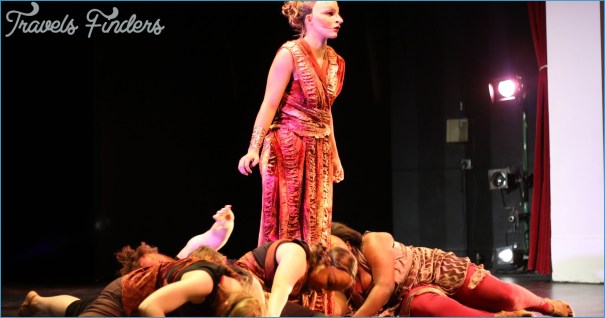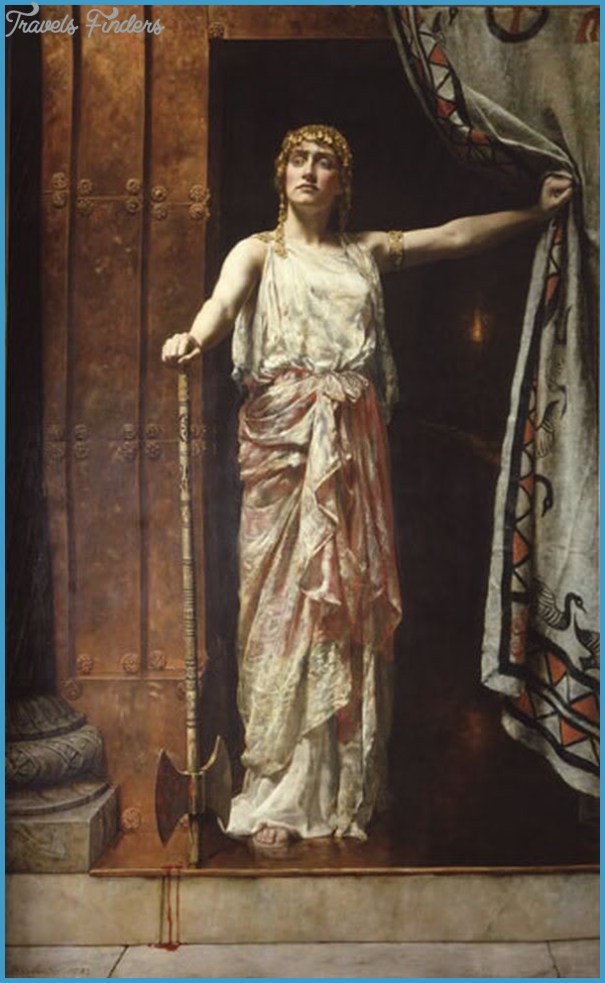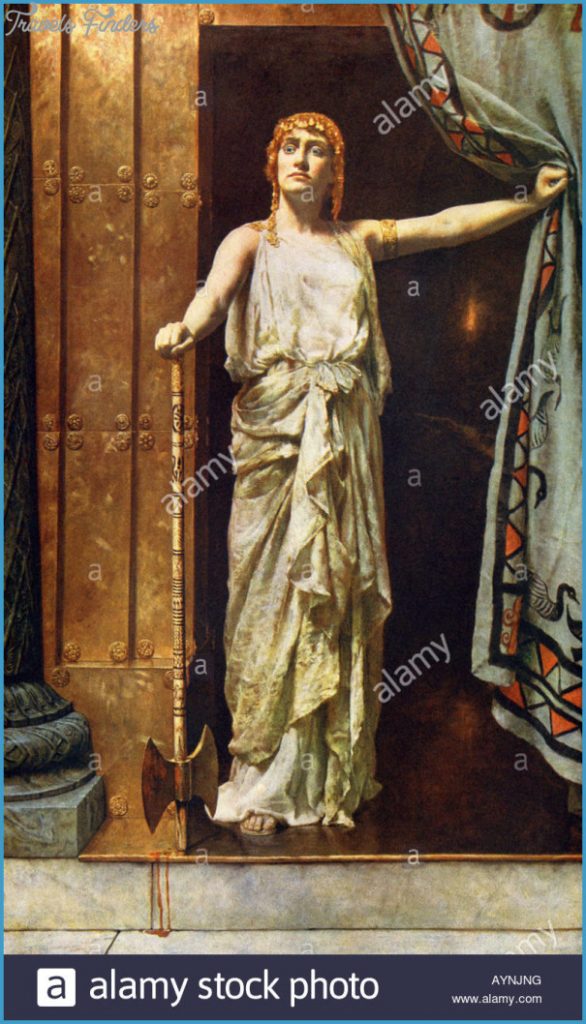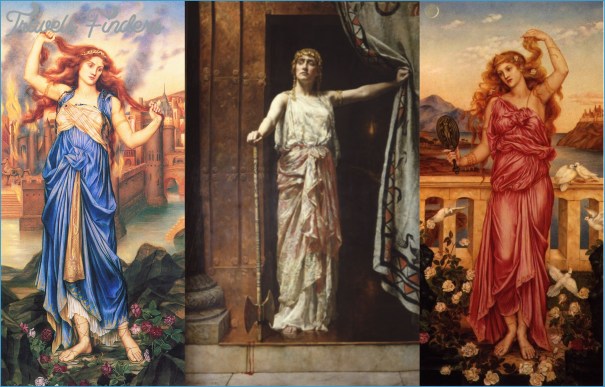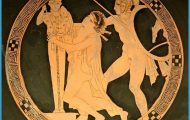Agamemnon and Clytemnestra had four children: a son, Orestes, and three daughters, Iphigenia (sometimes called Iphianassa), Electra and Chrysothemis. Mycenae flourished, becoming the most powerful city in all Greece. But once again the shedding of family blood brought disaster.
Agamemnon, Clytemnestra & Aegisthus Photo Gallery
In fulfilment of an oath, war was declared when Paris took Helen to Troy. As Menelaus’ elder brother and the most powerful of all kings, Agamemnon was appointed to lead the expedition to retrieve her, so he ordered the Greek army to assemble at the Bay of Aulis, opposite Euboea in the east of Greece. While there, Agamemnon asked his prophet Calchas to foretell how long the war would last. At once, an eagle swooped from the sky and seized in its talons a pregnant hare, which it ripped apart, revealing ten unborn and bloody leverets. The omen was clear. The war would last ten years. But the pregnant hare was sacred to Artemis, and her anger knew no bounds. She caused storm winds to scream down from Thrace, so that the soldiers, huddled by the lashing sea and enduring first rains, then starvation, grew increasingly resentful.
Calchas’ advice was chilling. Artemis would relent only if Agamemnon sacrificed his daughter Iphigenia. So, pretending he was giving her in marriage to Achilles, he summoned her to Aulis. Approaching the altar, her joy turned to terror when Agamemnon’s guards snatched her and raised her high.
Oh, how she begged and prayed and called out for her father. They did not care, though, in their lust for war, the generals. They did not care for all her youth and innocence. Agamemnon made the necessary prayer and told his men to hold her firm above the altar, like an animal, facedown, wrapped closely in her robes. He told them too to gag her mouth, her lovely mouth, to muffle any words that might bring down a curse upon the house by violence and the choking voiceless cord. Her yellow robes, dyed deep in purest saffron, fell heavy to the ground, and she looked at each man at the sacrifice, darting looks to melt the heart, lovely as a girl looks in a picture, wanting so to speak – as often in her father’s halls she’d sung at banquet, her virgin voice pure, lovely, honouring in love and gentleness the third drink offering to god, the sacred hymn, the hymn of hope for her dear father.
As the winds dropped and the soldiers raced to their ships, Iphigenia’s mother Clytemnestra was left alone to watch her daughter’s blood drying in the warming breeze.
Others attribute Artemis’ anger to Agamemnon’s inadvertent killing of a sacred deer, adding that at the moment of sacrifice Artemis relented and substituted a deer for Iphigenia, whom she transported to Tauris in the Crimea. Later, Iphigenia was returned to Greece by her brother Orestes, becoming the priestess of Artemis at Brauron, near Athens, where her hero-shrine can still be seen. Left in Mycenae alone with her resentment, Clytemnestra turned for support to Agamemnon’s enemy: Aegisthus.












